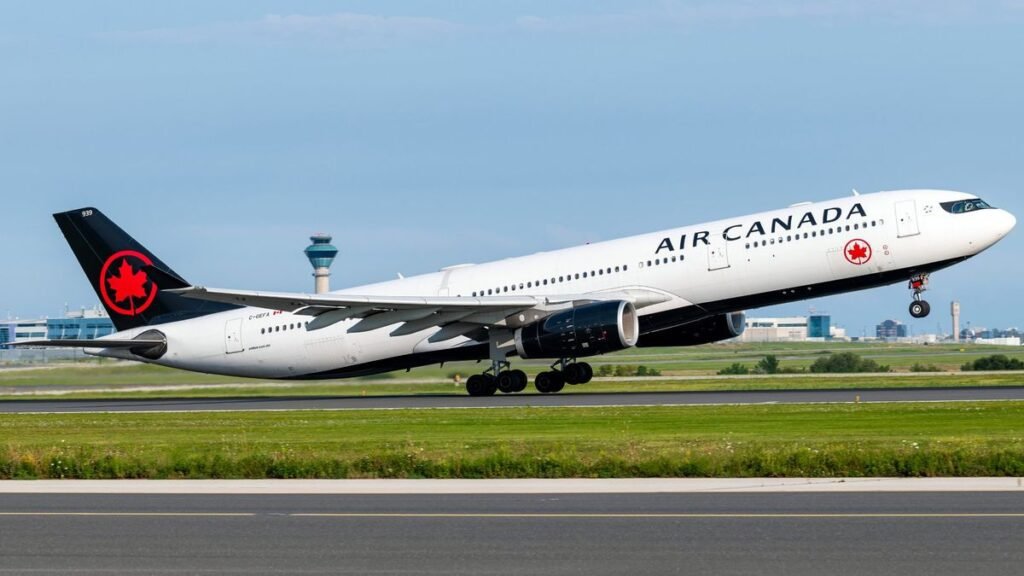Air Canada is set to begin canceling flights starting Thursday night, in preparation for a potential lockout of its flight attendants scheduled for Saturday morning.
The initial cancellations will predominantly involve long-haul international flights. By Friday, the airline anticipates broad cancellations across its network, including its lower-cost subsidiary, Air Canada Rouge, which typically accommodates around 130,000 travelers daily. According to Air Canada’s COO Mark Nasr, these disruptions could affect up to 100,000 passengers.
All operations are slated to cease by 1:30 a.m. Eastern Time on Saturday, coinciding with the lockout’s commencement.
This situation will also impact customers of United Airlines who have booked Air Canada flights through codeshare arrangements. To mitigate disruption, United has implemented a waiver of change fees and fare discrepancies for flights scheduled through August 27, applicable to both United and Air Canada/Rouge services.
As stipulated by Canadian labor laws, Air Canada issued a 72-hour notice for the lockout, following a strike notice from the Canadian Union of Public Employees (CUPE) representing the flight attendants. This notice was released in the early hours of August 13.
Operations for Air Canada Express flights, handled by regional partners Jazz and PAL, are expected to continue unaffected in the event of a lockout.
During a Thursday press briefing, the airline faced interruptions from union members who entered the venue, bearing signs that read messages including “Unpaid work won’t fly.” This demonstration underscores the tension surrounding the ongoing labor negotiations.
Flight attendants claim that Air Canada offers inadequate starting wages. Although the airline has proposed a wage increase of 17.2% over four years, union representatives argue that this adjustment does not fully compensate for work performed on the ground and falls short of market standards.
Conversely, Air Canada maintains that its recent offer would increase flight attendant salaries by 38% over four years and ensure pay for ground work. Chief Human Resources Officer Arielle Meloul-Wechsler emphasized that this proposal would position Air Canada flight attendants as the highest-paid within the country.
While Air Canada is open to binding arbitration to resolve the dispute, the union remains opposed, advocating for resolutions reached through negotiation. The airline has also solicited the Canadian government’s intervention for binding arbitration.
In a bid to minimize disruptions, Nasr explained that Air Canada’s gradual winding down of operations over three days is designed to ease the transition compared to a sudden halt. The airline has been preparing contingency plans for weeks. Should operations come to a standstill, a full resumption would take at least one week.
Passengers whose flights are canceled can receive refunds, applicable both in Canada and for those who booked Air Canada codeshares via United. The airline also intends to facilitate rebooking on the next available flights, collaborating with 120 international and Canadian carriers, although Nasr cautioned that available seats on those airlines may be limited.
Travelers booked on Air Canada between August 15 and 18 with refundable tickets can proactively arrange to rebook flights from August 21 to September 12. Those holding nonrefundable tickets may cancel their trips and receive future travel credits.


